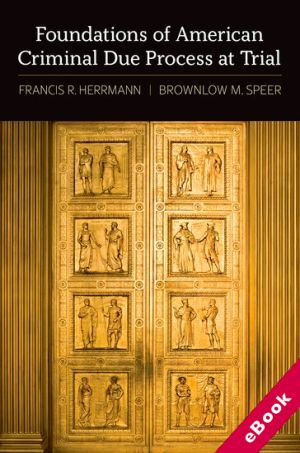
The device(s) you use to access the eBook content must be authorized with an Adobe ID before you download the product otherwise it will fail to register correctly.
For further information see https://www.wildy.com/ebook-formats
Once the order is confirmed an automated e-mail will be sent to you to allow you to download the eBook.
All eBooks are supplied firm sale and cannot be returned. If you believe there is a fault with your eBook then contact us on ebooks@wildy.com and we will help in resolving the issue. This does not affect your statutory rights.
A combination of media, personal experience, and education have introduced the average American to their right to a fair trial by jury, a protection set out in the Bill of Rights of the American Constitution. However, the specific rights that set the jury system up for fair trial procedure have roots far older than the Bill of Rights.
Foundations of American Criminal Due Process at Trial delves into a subject whose historical horizon includes the pulpit of St. Augustine, a workshop of ninth-century forgers, the prosecution of pirates in medieval England, and defendants' demands for basic safeguards in English common-law trials. Francis R. Herrmann and Brownlow M. Speer scrutinize previously overlooked primary sources, underline the influence of canon law and classic writings on English law, and trace fundamental protections of accused persons to Judeo-Christian principles. A text sure to be of interest to practitioners, scholars, and lay readers, Foundations of American Criminal Due Process at Trial anchors American fair trial rights in the geography and chronology of a Western legal tradition that encompasses Rome, medieval Europe, and England.